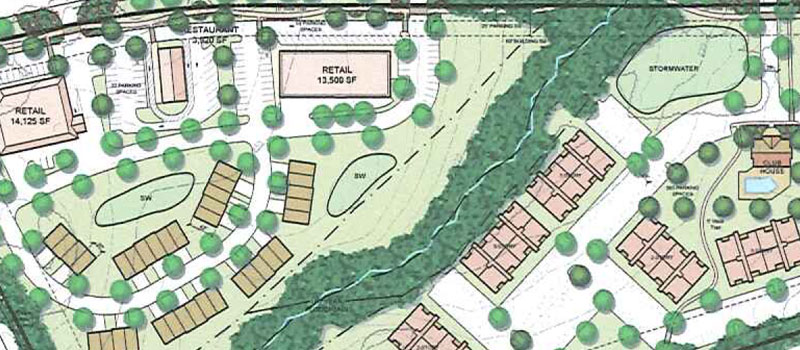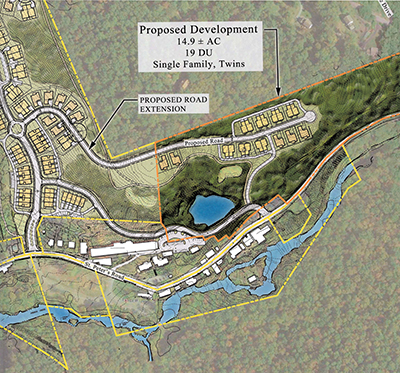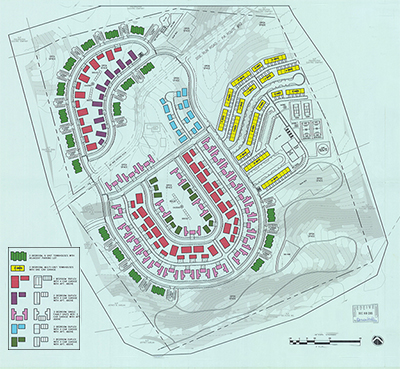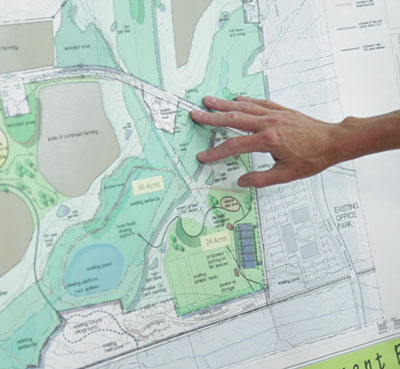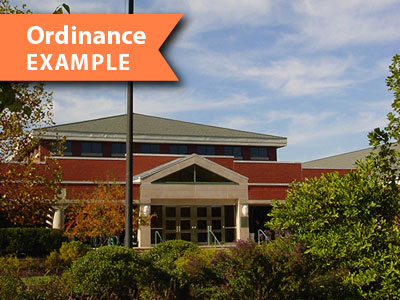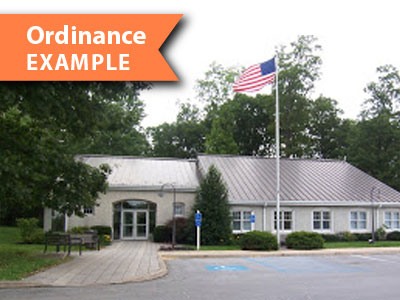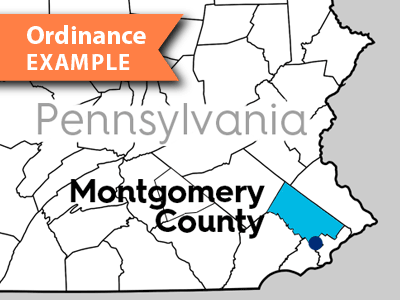A sketch plan provides a municipality the opportunity to guide development prior to formal preliminary and final plan phases.
How it Works
The submittal of a sketch plan provides a municipality the opportunity to review the concept layout of a project prior to formal preliminary and final plan phases. This gives a municipality the ability to guide design characteristics and layout features and ultimately help avert potential development proposal issues during official review. Sketch plan provisions within a subdivision and land development ordinance are usually optional. A planning commission, or any other agency, does not rule upon sketch plans. Typically, a fee for review is not required to encourage developers to submit sketch plans on a voluntary basis. The Chester County Planning Commission encourages the use of sketch plans and will review sketch plans upon request, at no charge.
Benefits
Improved design quality
Municipalities can give timely input on protecting key features, such as natural resources, historic properties, scenic views, and open space. The process also gives municipalities an opportunity to guide development in a way that maintains community character, ensures public safety, and provides for street connectivity and walkability.
Increased cooperation
The informal process involved with a sketch plan submission can improve communication with project developers, builders, and key municipal representatives who will review applications.
More efficient and cost-effective review process
The sketch plan review process can help municipalities move the official development approval process more quickly to save time. Developers can save money because there may be less issues raised before significant time and resources are expended on detailed engineering drawings.
Basic development concepts, such as building, street, driveway, and parking layouts should be included on a sketch plan.
Get Started
Adopt supportive ordinance language
A municipal subdivision and land development ordinance, typically in its procedures section, should include language encouraging the submission of sketch plans. Sketch plans should not be made mandatory. A sketch plan submitted under a mandatory requirement must be processed as a preliminary plan and acquires preliminary plan approval status and the 90-day time limitation for a decision on the plan must be met.
Identify information to include on a sketch plan
- Existing site conditions, such as topography, soils, wooded areas, etc.
- Existing context, such as nearby dwellings, structures and other important features
- Environmentally protected areas and sensitive areas to be preserved
- Zoning requirements
- A narrative describing the proposed development
- Lot lines
- Basic development concepts, such as building, street, driveway, and parking layouts
- Conceptual stormwater management
Establish a sketch plan review process
A planning commission should be responsible for discussing the sketch plan with the developer. In addition, the review period should occur within a reasonable timeframe to encourage the use of sketch plans. A 30-day review period is fair and should not needlessly delay a developer's project.
Incentivize use of the sketch plan
Having no review fee for sketch plans can encourage the submission of sketch plans. A municipality may also want to allow a development proposal to proceed to the final plan application phase if the developer accepts a municipality's sketch plan comments and makes recommended modifications. Note, this review acceleration incentive would be most effective if a municipality makes it policy to allow waiver requests for skipping preliminary plan application phase only if a sketch plan is submitted.
A pre-application meeting can help ensure an understanding of what processes are necessary to make a decision on the proposal.
Considerations
Resistance from applicants
Some developers may avoid submitting sketch plans because their plan may be very simple, or they wish to initiate the Pennsylvania Municipalities Planning Code's mandatory review period as soon as possible. Other applicants may believe their initial project proposal will generate opposition from local citizens.
Willingness to compromise
A municipality should be prepared to consider waivers from ordinance provisions and/or not formally oppose variance requests for the project before the Zoning Hearing Board, to create a better plan.
Public participation
Although sketch plans are not fully engineered plans and may involve significant alteration, municipalities should consider including sketch plan reviews on their planning commission's regular meeting agendas. This allows for more transparency and citizen feedback, which can result in less potential for public opposition later in the process.
Pre-application meetings and site visits
A pre-application meeting with the applicant, the applicants designated professional agents, and municipal reviewers can help ensure an understanding of what processes are necessary to make a decision on the approval. A meeting at the development site also may be helpful in identifying issues before significant time and money is invested. Municipalities should consult their solicitor to determine how these types of meetings satisfy open meeting requirements.


